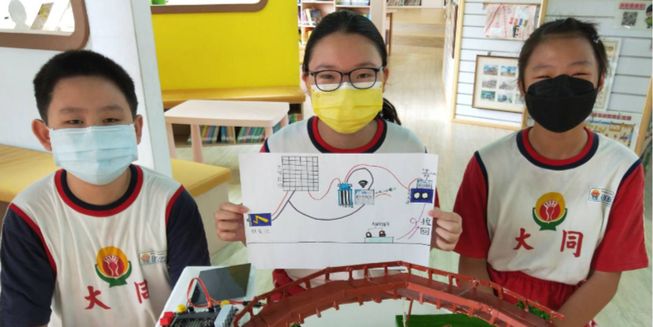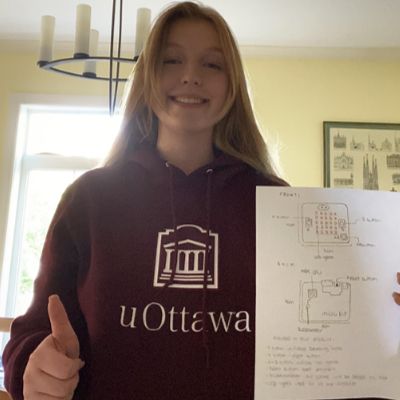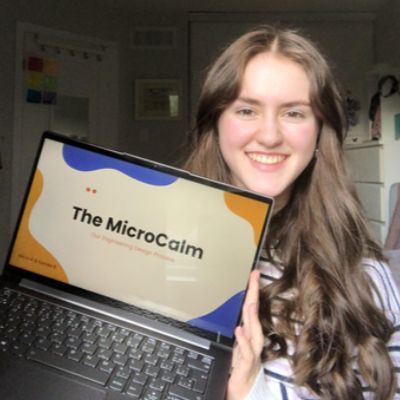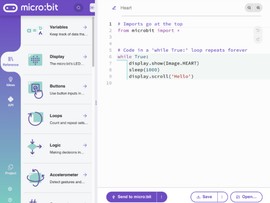Global Goals give social purpose to children's tech innovations
Winners from across the world announced in the 2021 do your :bit global challenge
This year’s entries to the annual competition showcase an outstanding standard of work from young people who have experienced such challenging daily lives in the continuing COVID-19 pandemic.

Cheng-En, Ko-Hsin, Zi Qing from Taiwan, Asia & Pacific winners in 8-14 micro:bit category
The do your :bit challenge is an annual competition which sets the challenge to innovate and design solutions relevant to the Global Goals that are meaningful to 8-to-18-year-olds. It is organised by the Micro:bit Educational Foundation in partnership with the World’s Largest Lesson and the British Council.
Almost 4,000 young people’s original ideas and solutions were submitted as video presentations, photographs, technical drawings, software programs and written statements. This represents thousands of hours of creative enterprise, technical development and engagement with applying technology to a problem-solving and design process.
Innovation reflects young people’s experience of pandemic and impacts of climate crisis
The themes of the concepts and prototypes reflect young people’s response to global issues that impact us at a local and personal level. Global Goal 3, Good Health and Well-being and Goal 13, Climate Action feature heavily in the entries.
With entries from across the world, winners are recognised by region across two age categories, 8-to-14-years and 15-to-18-years. Entries can be made as an individual or team of three. In total there are twenty-one winners this year, representing the work of twenty girls and nineteen boys.
Read about all the winning entries.

Esmée from Canada, North America winner in 15-18 micro:bit category

Alicia from Canada, North America winner in 15-18 micro:bit category
The judging process
This year the standard of entries was very high, and the judges spent many enjoyable hours deliberating over the best ideas. The winners and runners up were chosen by a panel of judges with backgrounds in education and technology.
The judges looked for entries that showed:
- originality and creativity in problem solving
- good implementation of their idea and clear instructions
- high potential impact
Read about the judges of do your :bit and their range of expertise.

